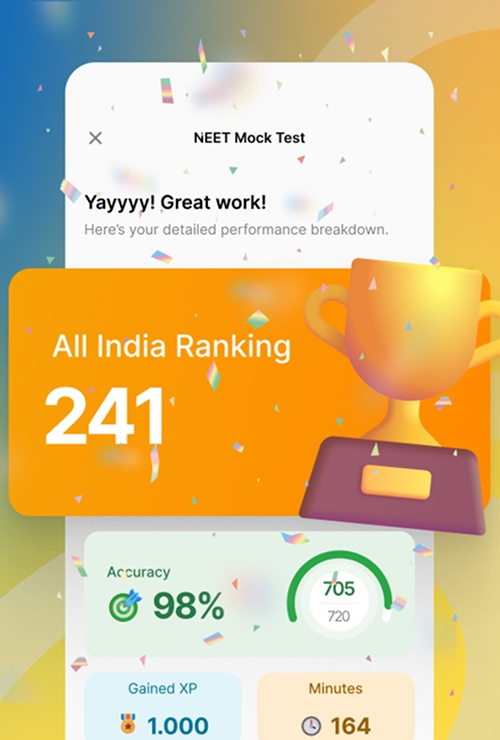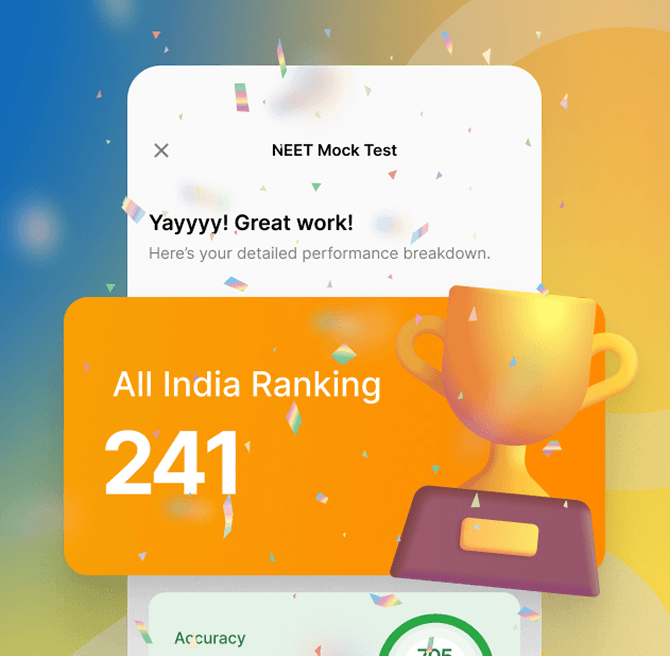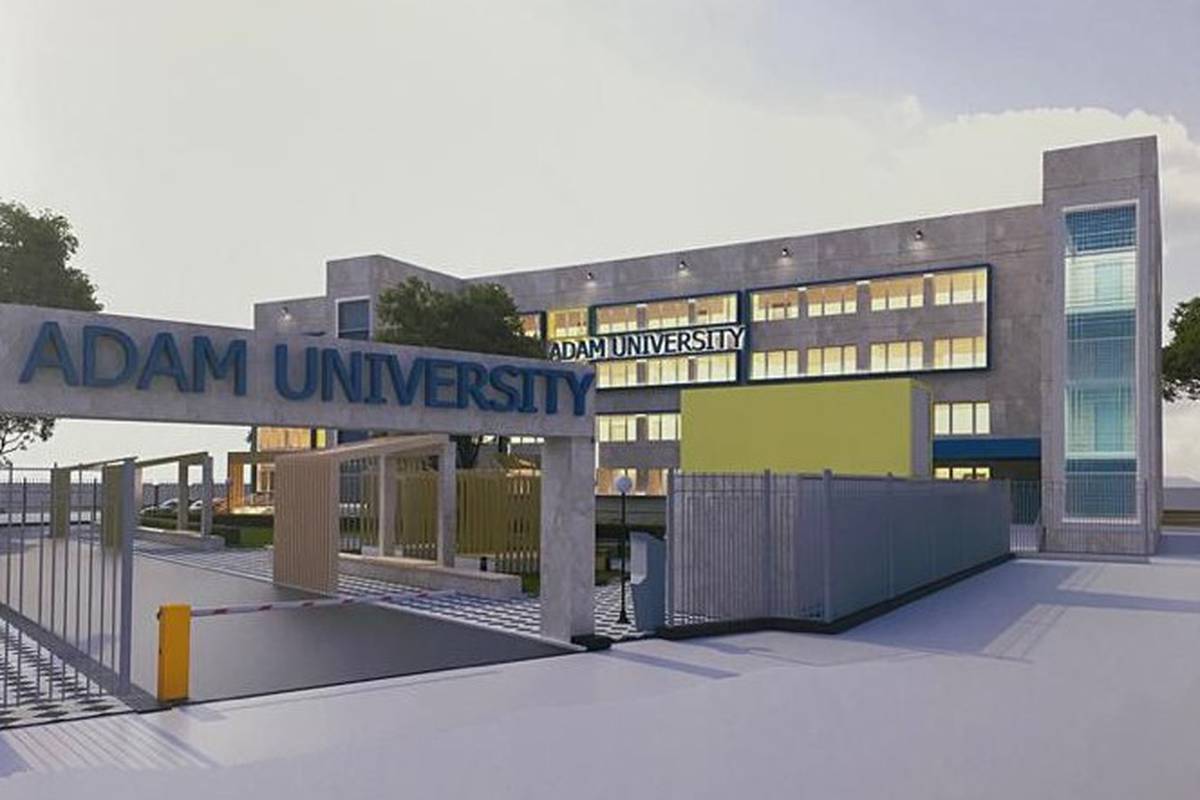
☝️ At a glance
- NEET 2024 results are out; celebrate your success and prepare for the next steps.
- Challenges in Indian medical college admissions include high competition, limited seats, varying cutoffs, and high fees.
- Consider exploring MBBS opportunities in Europe for better education and career prospects.
- European MBBS programs offer superior infrastructure, global recognition, diverse experiences, and research opportunities.
- Studying MBBS abroad enhances language proficiency, soft skills development, and cultural exposure.
- With FutureMBBS, receive expert guidance and support for a successful international medical career.
Dear Future Doctors,
Congratulations on your success in NEET 2024! Your hard work, dedication, and commitment have brought you one step closer to your dream of becoming a doctor. With the NEET 2024 results available, it's time to celebrate and move forward on your path to a rewarding career in medicine.
Out of 998,298 male applicants, 547,036 met the qualifying requirements, while 769,222 of the 1,334,982 female candidates passed the test.
But what comes next for aspiring doctors like you? Let's explore the exciting opportunities after NEET and see how futureMBBS can help you achieve international success in medicine.


The Challenge of Indian Medical College Admissions
You've cleared NEET, but getting into Indian medical colleges has its own difficulties. Have you ever wondered why even top-scoring students struggle with the admission process?
67 Candidates Score All India Rank 1
In 2024, 67 students achieved an All-India Rank (AIR) of 1. Remarkably, even with such top scores, many of these students encounter difficulties in securing admission to esteemed institutions like AIIMS.
With less than a 5% chance of securing a spot in these government colleges, it's no wonder many students are left wondering what to do next.
Limited Faculty
According to the National Medical Commission (NMC), the doctor-to-student ratio in many medical colleges is below the recommended level. This shortage affects the quality of education and the individual attention that students receive.
Many Indian medical colleges operate with faculty-to-student ratios of 1:25 or worse, despite WHO's 1:15 recommendation.
Reservation Policies
15% of seats in government medical and dental colleges are allocated as All India Quota (AIQ) seats, based on NEET-UG reservation standards, and open to candidates from all states and union territories.
While this system aims to promote inclusivity and provide opportunities for underrepresented communities, it often limits the chances of general category students securing admission.
Varying Cutoff Scores
The cutoff scores for medical college admissions in India vary each year and across different states. These changes depend on several factors, including the number of applicants, the difficulty level of NEET, and the availability of seats.
For example, in some states, the cutoff for government medical colleges can be as high as 600-650 marks out of 720, while in others, it might be slightly lower. This makes it challenging for students to plan their future with certainty.
Increase in Number of Aspirant
The number of students taking NEET has increased by almost three times in the past 10 years. As per the study conducted by the National Institute of Educational Planning, only 0.25% of these aspirants make it to the top colleges, highlighting the intense competition and limited opportunities.
High Fees of Private Medical Colleges
While government institutions are more affordable, the fees of private medical colleges in India are significantly high. This financial burden can be a hurdle for many families, pushing them to seek more cost-effective alternatives abroad.
Outdated Curriculum & Infrastructure
Many Indian medical colleges encounter major hurdles like outdated study plans that don't match current medical methods, lack modern labs and advanced equipment, and prioritize theory over hands-on training. Moreover, there's less focus on medical research, with many doctors choosing jobs over research roles.
These factors create a gap between what students learn theoretically and what they can do practically, leaving them unprepared for real-world medical practice.
But fear not, instead of considering a “drop year,” explore alternative paths like pursuing MBBS options in Europe, where opportunities await beyond the constraints of India's competitive landscape.
Click here to download the NEET Zoology chapter-wise weightage
Download PDFExploring Global Horizons
Have you considered the vast opportunities that await you in medical education abroad? Picture yourself learning in world-class universities, surrounded by peers from multiple cultural backgrounds, and gaining hands-on clinical experience that crosses borders.
Did you know that studying MBBS abroad is not only an enriching educational experience but also an additional pathway for aspiring doctors who may not have cleared NEET?
Mapping Your Course
Now that you've achieved success in NEET 2024, it's time to map your course towards a global medical career.
But where should you start your journey? Dare to dream big as you dive into the abundance of opportunities awaiting in MBBS programs across Europe.
Explore the diverse range of European destinations and institutions that offer many advantages like better student-teacher ratio, cost effective tuition, in depth medical research, advanced curriculum, and healthy competition in terms of seat availability for meritorious candidates.
Evaluate key factors such as academic prestige, clinical training opportunities, and cultural experiences as you navigate this transformative path.
Click here to download the NEET Botany chapter-wise weightage
Download PDFSecuring Opportunities
Studying MBBS in Europe offers a wealth of opportunities, from clinical practice to groundbreaking research and public health initiatives. With affordability, global career prospects, internationally recognized degrees, and advanced facilities, European medical universities provide an apt environment for aspiring medical professionals.
It's a pathway that not only fulfills aspirations but also propels towards a successful career in medicine worldwide.
Why futureMBBS?
At futureMBBS, we understand the dreams, and challenges that future doctors like you face. Our personalized approach and commitment ensure you navigate studying MBBS abroad with confidence and clarity.
As you celebrate NEET 2024 success, remember it's just the start of your journey to becoming a doctor. Embrace the opportunities that await you beyond Indian borders, and let futureMBBS be your trusted companion on this amazing adventure.
Your dream of a global medical career starts here. Let us make it a reality together.






